For many years, yeast has been used in the production of bakery goods and brewing, and in health and sports nutrition as well. Brewer's yeast is a supplement that has more in common with beer than with ordinary cooking yeast. The reason lies in the fact that brewer's yeast is treated with a technology that kills microorganisms, but without affecting the vitamins and minerals they contain. In cooking yeast, the cultures are alive.
For the production of various types of yeast (brewer's, winemaker's, baker's), a huge group of unicellular eukaryotic organisms from the fungi kingdom can be utilized. A characteristic of these yeasts is that they tend to ferment, meaning that they convert carbohydrates into alcohol. The fermentation process is used in the production of alcoholic beverages, bakery goods and a variety of other products.
Thanks to many years of selection, makers have prescreened different groups of microorganisms that are more or less beneficial and have few or almost no toxic elements. Thus came about the discovery of Saccharomyces yeast.
This brings us to the conclusion that beer and bread yeast are cousins in the family of so-called "favorable microorganisms." Both are members of the yeast genus Saccharomyces. The word comes from ancient Greek and means "sweet mold". The yeast species Saccharomyces Cerevisiae are used in brewer's yeast. They surpass their fellows in the amount of beneficial vitamins and substances contained therein.
Cerevisiae comes from Latin and literally means "of beer". Before packaging them as a dietary supplement, beer yeast undergoes a special process that is associated with auto digestion. This means inducing controlled cell death and beer yeast enzymes being able to digest vitamins, amino acids, minerals, lipids, peptides, acids and various fragments of complex chemical composition.
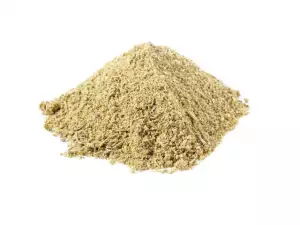
Composition of brewer's yeast
The most well-studied and generally known phytochemicals comprising the yeast are a large portion of the vitamins in B group - B1, B2, B3, B5, B6, B7, B9 and B12. Iron, calcium, potassium, manganese, phosphorus, zinc and magnesium are the most well-represented minerals in brewer's yeast.
Selection and storage of brewer's yeast
Brewer's yeast is sold in many drugstores, health food and fitness product outlets. It can be purchased in the form of supplements or powdered. The most convenient and preferred option are tablets that themselves are dried yeast, which are then packed in a suitable for acceptance form.
Regardless of the form brewer's yeast is purchased in, it must be stored in a dry and ventilated area, away from moisture and direct sunlight.
Benefits of brewer's yeast
Among the proven benefits of taking brewer's yeast is that it is natural, organic and provides your body with extra amounts of vitamins. This is particularly valuable for strict vegetarians, who want a fully organic diet. Brewer's yeast delivers moderate to high doses of micro- and macronutrients.
In the column of unsubstantiated allegations, are suggestions that brewer's yeast reduces levels of bad cholesterol in the blood, reduces blood sugar levels, improves athletic performance. It is believed that it increases energy levels, due to its high content of vitamins and minerals. This does not make brewer's yeast energy food, but rather a good anti-anaemic supplement. Some scientists have suggested that it is possible for fragments in the membranes of yeast to help white blood cells fight foreign organisms.

It cannot be denied that brewer's yeast procures most of the vitamins in B group for the body. Deficiency of one of them usually leads to poor solubility and lack of other vitamins, therefore they must be taken in a balanced and moderate way.
Brewer's yeast is great for deficiency of gastric juice, while its richness in amino acids makes it a valuable tool for rapid healing after sickness. It stimulates the immune system and is suitable after chemotherapy.
Dangers of brewer's yeast
Treatment with this yeast lasts from 1 to 3 months. Brewer's yeast is grown on hops and is sustained by barley malt. Drinking live yeast is not recommended because it depletes valuable nutrients from the body. Tablets are the most suitable for intake.
For some people, the first few days of dosing may bring about bloating, flatulence or belching. These side effects occur several hours after dosing. Usually, they subside after the first week. Brewer's yeast should not be taken by people who already use a sports multivitamin.
Beauty with brewer's yeast
Besides being extremely useful to the body, brewer's yeast has a beneficial effect on the skin. It improves appearance, cures dermatitis, eczema and acne. It removes dandruff and improves hair structure, strengthens nails. It is no accident that Sophia Loren drank a daily cup of ayran, in which brewer's yeast was dissolved. Thanks to this procedure, her skin and hair were in perfect order.
If you suffer from dry or very dry skin, dissolve a little brewer's yeast in 3 1/3 tbsp (50 ml) of milk. Add lemon juice and 1 egg yolk. Apply to the skin and wash off after 10-15 minutes.
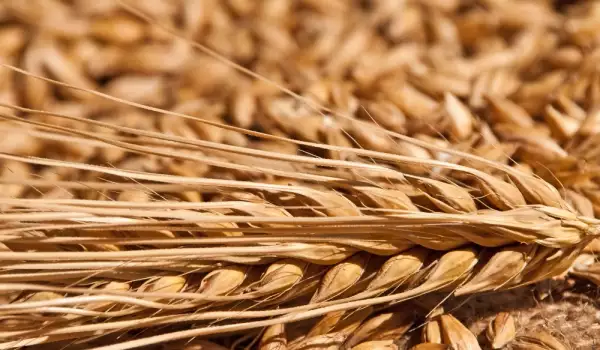




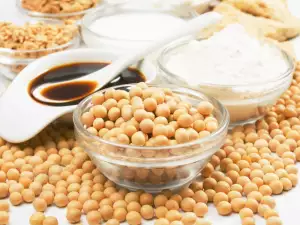



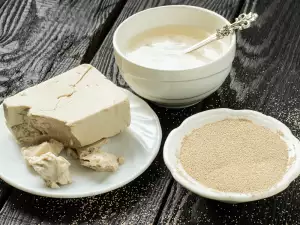

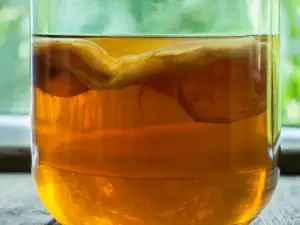








Comments